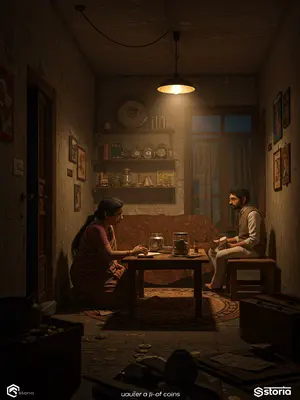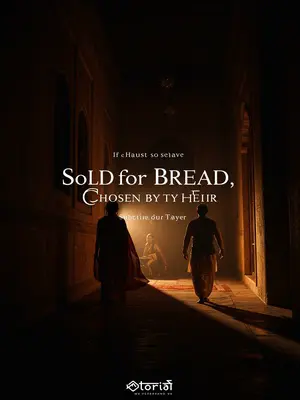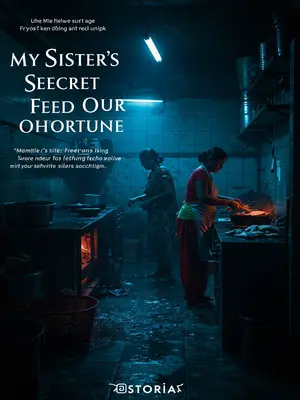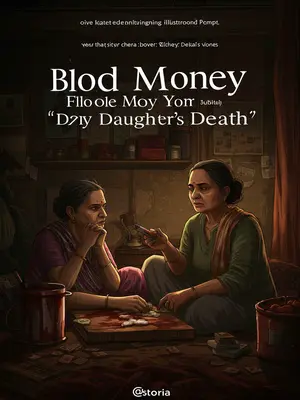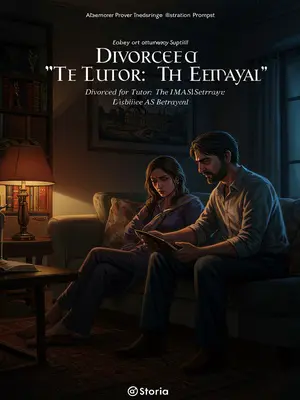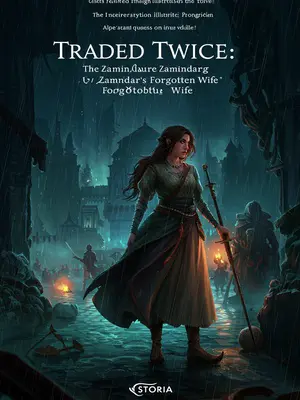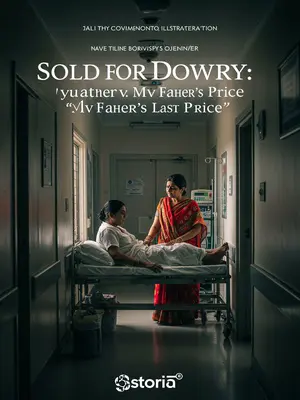Chapter 9: Mad with Grief
Mom didn’t come—she was busy digging up my sister’s coffin.
Neighbors whispered as she worked alone, her hands raw and bleeding from clawing at the earth. Some watched in horror, others in silent sympathy, but none dared to help.
That day, she held my sister’s body, dug from the grave, and sobbed to me, asking, how could there be a grand funeral for a child who died young? The Sharma family, just to save face, condemned my daughter to never rest in peace.
Her voice cracked with fury and despair. She clung to my sister’s tiny form, rocking back and forth as if trying to rewind time. “Ek choti si bacchi, aur itni badi shok sabha? Yeh sab unki izzat ke liye hai, meri beti ke liye nahi.”
I watched my sister’s body in my mother’s arms. I tried to hold her little hand, but it was cold and stiff.
Her fingers, once so warm, were now rigid and unyielding. I traced the lines of her palm, memorizing every crease, afraid to let go—even now.
I fetched a bucket of water and gently wiped my sister’s face.
The water was icy, stinging my hands as I dipped the cloth. Each gentle stroke felt like an apology for every happiness she’d missed, every kindness denied.
I couldn’t stop crying, my heart aching, but my always-loving mother gripped my shoulder so hard her nails dug into my flesh.
Her grip was desperate, anchoring me to the living world. Tears streamed down her face, mixing with mine, our grief tangled and endless.
She said, “You must not cry. Later you have to smile and thank the Sharma family. Promise me, you must live well and always remember this day.”
Her words were a command, not a comfort. She stared into my eyes, daring me to disobey. “Aansu mat bahana, beta. Unko dikhana hai ki hum bhi kuch hain. Humari beti gayi hai, lekin izzat ab bhi humare paas hai. Samjha?”
I looked at my mother’s hate-filled face and forced my tears back.
I swallowed hard, the taste of salt and sorrow burning my throat. Her hatred became my shield, her pain my inheritance.
I promised I would always remember today.
In that moment, I etched every detail into my heart—the dirt beneath my nails, the scent of sweat and earth, the hollow ache of loss. I vowed never to forget.
But I didn’t know then how much I would have to forget just to survive.
Mom knelt on the ground, holding my sister’s body, and suddenly bit my shoulder hard.
The pain was sudden, sharp, almost unbearable. I gasped, but didn’t pull away. Her teeth sank deep, drawing blood, as if marking me with our family’s suffering forever.
She bit with all her strength.
It was an animal gesture, raw and wordless. For a moment, the world shrank to just the three of us—one last, desperate embrace.
But I didn’t want to dodge, because when she bit me, it felt like the three of us were hugging, as if we were protecting my sister together.
I closed my eyes, imagining my sister’s arms around us both. For a brief second, we were whole again—bound by blood, loss, and love.
Only when my shoulder was covered in blood did Mom let go.
She stared at the wound, her breathing ragged, her eyes wild. The blood stained my shirt, a scar I would carry long after the wound healed.
The mother who was always gentle now looked like a madwoman, telling me to go receive the guests and never forget this day.
Neighbours gasped, some crossing themselves, others whispering, “Pagal ho gayi hai.” This grief was no longer private—it was spectacle, madness in the eyes of the community.

